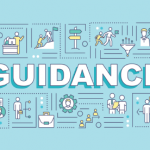Any damage that’s been done in the pages of JAMA will need to be repaired. If an original article based on laboratory research was found to contain two or three erroneous experiments due to a flawed data collection and analysis strategy, the likely outcome would be retraction of the whole article until the entire body of work could be repeated using a better protocol. It will be up to the editors of JAMA to decide whether that standard should also apply to the type of study done by Ross et al. At a minimum, sincere and prominent corrections and apologies will need to be extended to all those who have been inappropriately tainted.
Meanwhile, physicians, scientists, and their professional organizations should think seriously about the next steps we need to take. Why not upgrade authorship standards for clinical trials, review articles, and, indeed, all of the biomedical literature so that accusations of manipulation and ghostwriting would never be correct? If the ACR’s code of conduct is not sufficiently explicit on these issues, shouldn’t we revise it? In my view it would be a mistake to let any errors in the JAMA article deter us from a serious look in the mirror about these important issues.
Disclosure: My columns aren’t ghostwritten, but I am grateful for review by and input from various ACR staff members and volunteers, most notably Tammy J. Tilley, ACR’s senior director of communications, and Mark Andrejeski, ACR’s executive vice president.
Dr. Fox is president of the ACR. Contact him via e-mail at [email protected].

